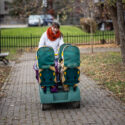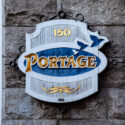One out of eight adolescents has admitted to using prescription medication
Many youth mistakenly believe that prescription drugs are safer than illegal drugs, since they have been approved for consumption. They don’t necessarily understand that taking medication for non-medical reasons carries severe risks: intoxication, dependency, overdose, and death. to get high, and 70% of them found the medication at home [1].
This spring, Portage collaborated with the Ordre des pharmaciens du Québec on a campaign to raise awareness about prescription drug abuse among adolescents. The main objective of the campaign was to inform parents about the issue, while providing them with tools to either prevent the problem or deal with it.
- Take inventory of the medication you keep at home and check quantities regularly, to ensure that you notice if any medication goes missing.
- Return any unused or expired medication to the pharmacy. Do not throw it in the garbage or in the toilet.
- Put all medication still in use in a safe place that only you can access. Monitor your child’s consumption when he or she has to take prescription medication.
- Pay attention to your child’s attitude and behaviours. Ask yourself: Does he or she have more mood swings than usual? Has he or she become more aggressive? Has his or her circle of friends changed? Has he or she abandoned activities that were once enjoyed? Are problems at school more frequent? If your child is exhibiting any of this unusual behaviour, he or she may be taking drugs.
- Talk to your children about drug abuse so that they feel that that they can confide in you and that you will help them if they need it.
- Share this information with loved ones.
[1] Centre for Addiction and Mental Health, 2013 Ontario Student Drug Use and Health Survey (OSDUHS).





